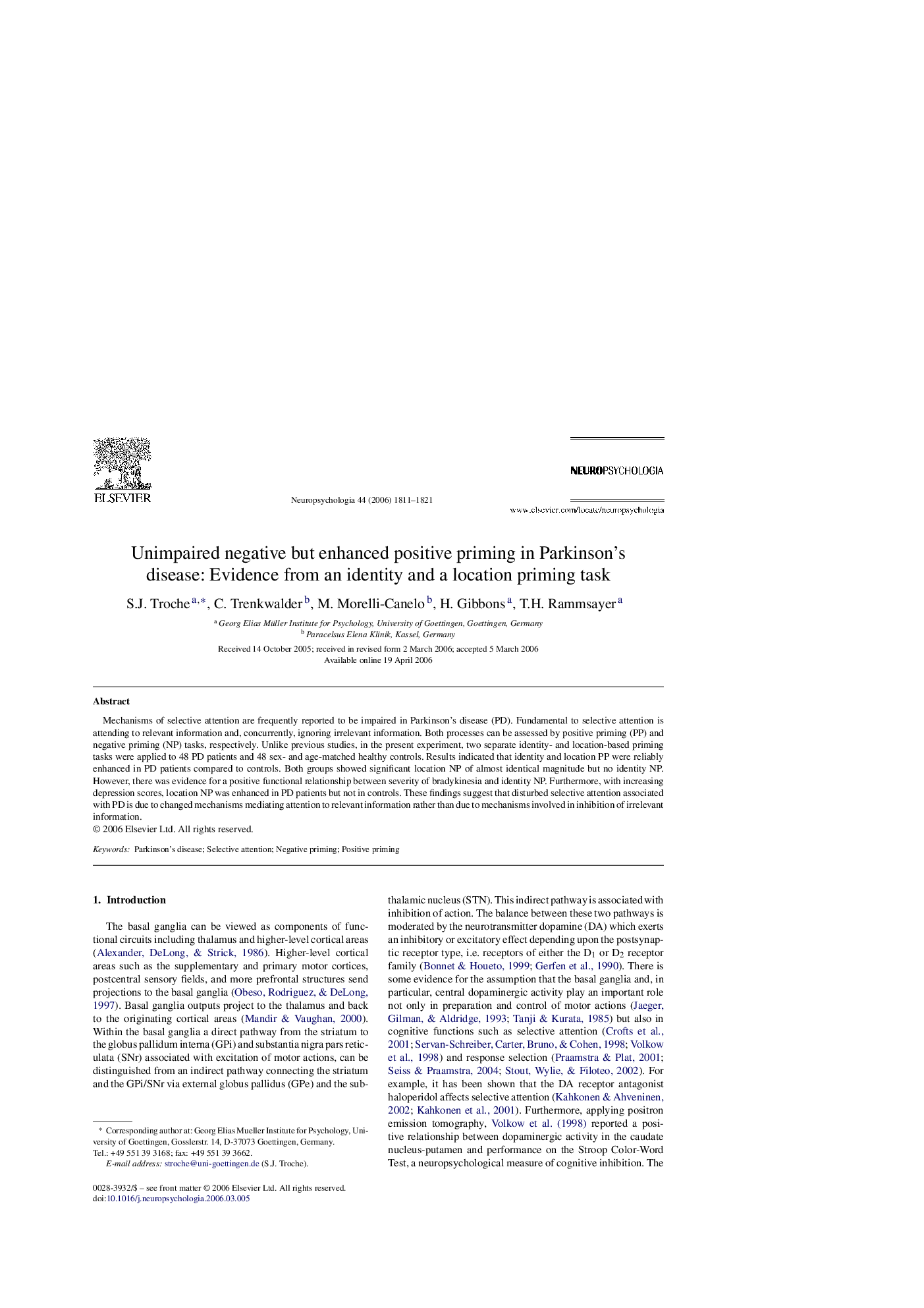| Article ID | Journal | Published Year | Pages | File Type |
|---|---|---|---|---|
| 945650 | Neuropsychologia | 2006 | 11 Pages |
Mechanisms of selective attention are frequently reported to be impaired in Parkinson's disease (PD). Fundamental to selective attention is attending to relevant information and, concurrently, ignoring irrelevant information. Both processes can be assessed by positive priming (PP) and negative priming (NP) tasks, respectively. Unlike previous studies, in the present experiment, two separate identity- and location-based priming tasks were applied to 48 PD patients and 48 sex- and age-matched healthy controls. Results indicated that identity and location PP were reliably enhanced in PD patients compared to controls. Both groups showed significant location NP of almost identical magnitude but no identity NP. However, there was evidence for a positive functional relationship between severity of bradykinesia and identity NP. Furthermore, with increasing depression scores, location NP was enhanced in PD patients but not in controls. These findings suggest that disturbed selective attention associated with PD is due to changed mechanisms mediating attention to relevant information rather than due to mechanisms involved in inhibition of irrelevant information.
